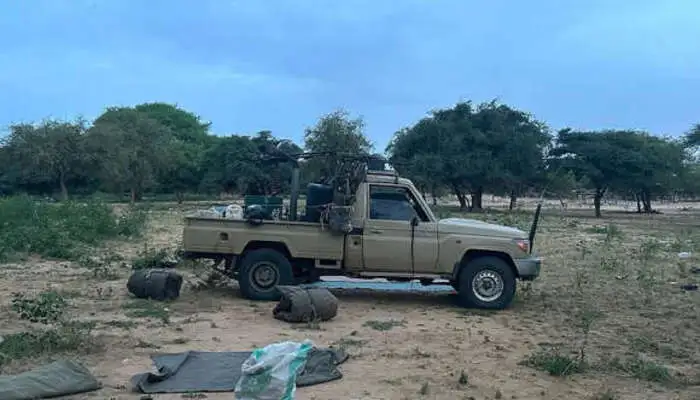CNN’s veteran correspondent, Clarissa Ward, revealed a harrowing experience of being held captive by a militia in Darfur, Sudan. The incident occurred while she was reporting on the civil war that has devastated the region. Ward, 44, was accompanied by cameraman Scott McWhinnie and producer Brent Swails when they were detained by armed fighters for two days.
Just hours after arriving in North Darfur, Ward and her team were stopped by a militia led by a man known as “the general.” The armed fighters surrounded their vehicle and shouted aggressively, warning them not to film. Ward described the terrifying moment when the general fired a shot, narrowly missing them. “I was relieved the gun wasn’t pointed at us,” she recounted, “but still disturbed by his erratic behavior.”
The team had been invited to Tawila by a faction of the Sudan Liberation Movement (SLM-AW), a neutral party in the war. However, when they reached the meeting spot in Aby Gamra, they were instead confronted by a rival militia armed with rocket-propelled grenades and machine guns.
Interrogation and Captivity
Ward and her team were detained, their driver taken to a local jail, and the crew interrogated for three hours in a small, windowless room. Afterward, they were forced into their vehicle and driven deeper into Darfur, with their captors firing weapons and shouting orders.
Read: Terror Attack at Turkish Aerospace Facility
During the ordeal, Ward pleaded with the militia, telling them she was a mother with three young children. One of the militia leaders attempted to reassure her by saying, “Don’t be frightened… We are human beings.” In a chilling move, the militia called the CNN team’s relatives to assure them they were safe, while also warning they could be held for many years if they spoke about the situation.
Two Days of Fear and Uncertainty
For two days, the CNN crew was held captive under the watch of armed men, some as young as 14. Ward described her time in captivity as filled with anxiety and physical discomfort, limiting her water and food intake due to the lack of private space. She and her team slept outside, under acacia trees, hoping for the nightmare to end.
“Sleep, when it came, was a mercy,” Ward recalled, “a reprieve from the panic of not knowing when I would see my children again.”
After 48 long hours, the general informed the CNN crew they would be released. He explained they had initially believed the team were spies but had since decided to let them go. Overcome with relief, Ward and her colleagues were finally freed, posing awkwardly for a photograph with their captors before leaving the makeshift prison.
Ongoing Conflict in Darfur
Despite their release, Ward’s team never made it to their original destination of Tawila. The conflict between the Sudanese military and the Rapid Support Forces (RSF), which erupted in April 2023, continues to rage across the country, particularly in Darfur. According to the UN, more than 20,000 people have been killed, and over 10 million displaced since the fighting began.
Ward’s firsthand account underscores the dangers journalists face while reporting in conflict zones and the immense toll the civil war has taken on Sudan’s people.
Follow us on Google News, Instagram, YouTube, Facebook,Whats App, and TikTok for latest updates
